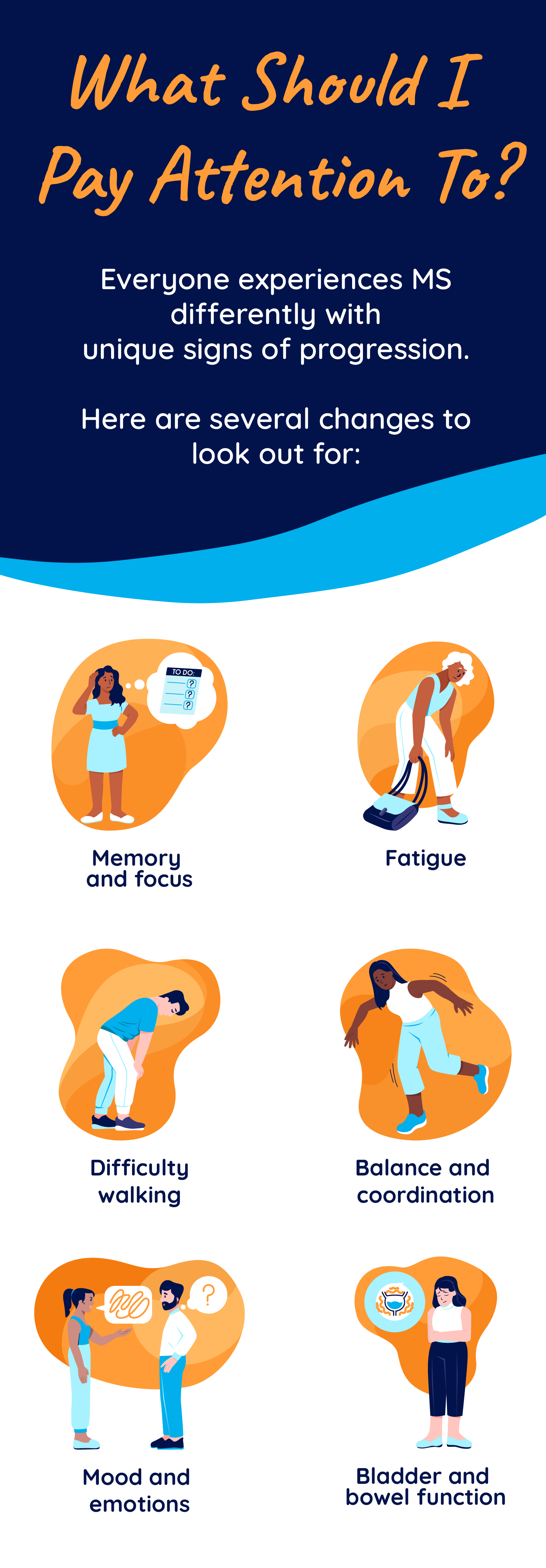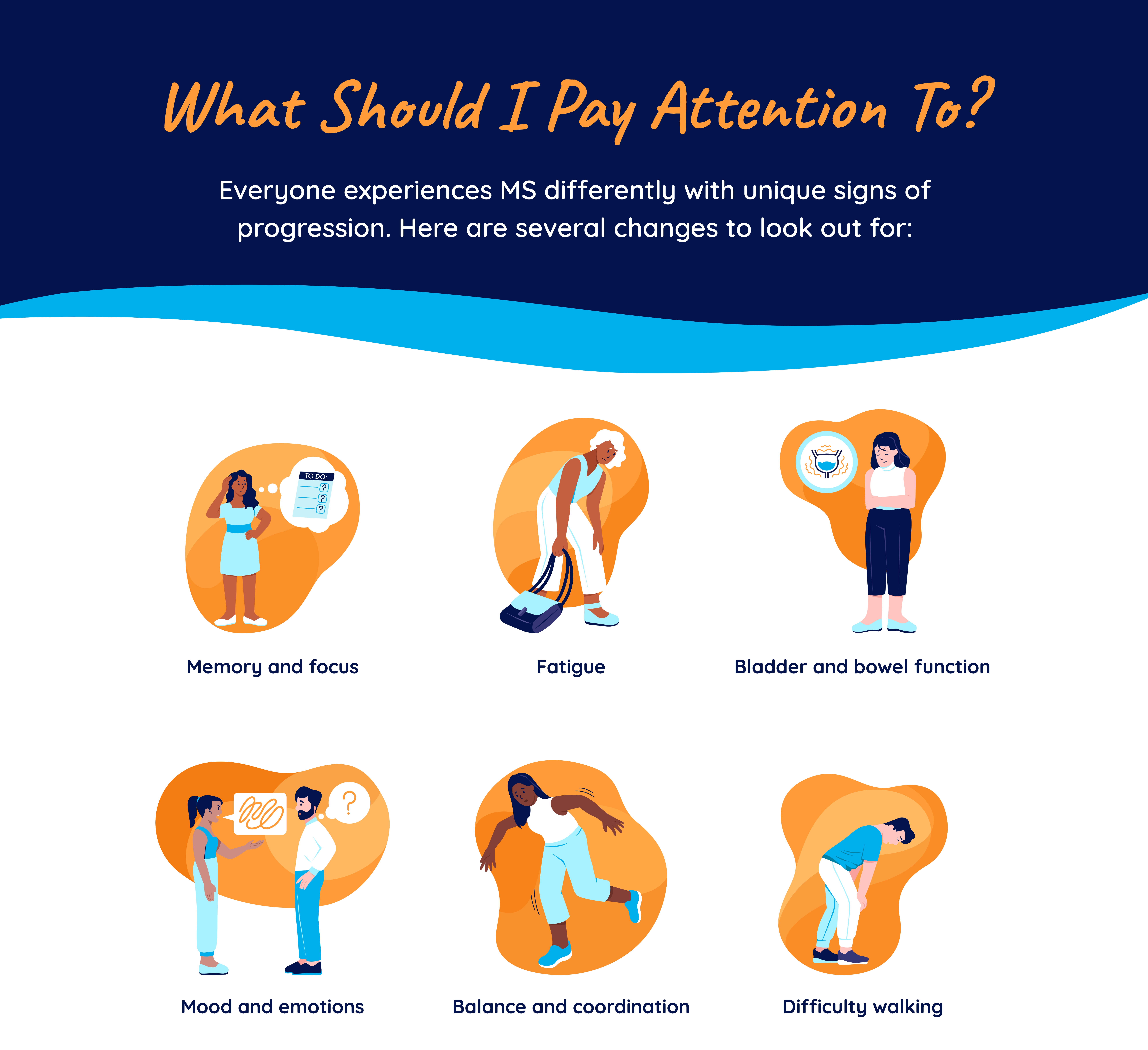- Article
- Source: Campus Sanofi
The care partner’s guide to tracking changes in MS
The more you know about changing MS, the better prepared you are to be a supportive care partner.

No matter what your relationship is to the person you care for, you play a key role, and what you notice is important to understanding the full picture of their MS progression. You may have already seen subtle changes in their behavior, mood, or ability to do everyday tasks. It’s important to learn more about the way MS symptoms can change, so that you can help spot what may otherwise go unnoticed.
What should I pay attention to?
Everyone experiences MS differently with unique signs of progression. Being close to the person living with MS, you are more likely to notice changes that others may miss. You can be an extra set of eyes and ears and, if you are noticing changes, have an open conversation with the person you care for. You may decide that it would be helpful for you to go to their next healthcare appointment.
Keep an eye out for changes in:
- Difficulty walking: Are they needing more support than usual covering the same distances? Do they walk more slowly than they did 6 months ago? Do you think they need an assistive device? Or, if they have one, are they resistant to using it?
- Balance and coordination: Are they moving more carefully than they were a month or a year ago? Do they drop things or have trouble picking up objects?
- Bladder and bowel function: Are they having trouble making it to the bathroom in time? Do they have accidents from time to time?
- Memory and focus: Are they searching for words more often or forgetting the names of things?
- Mood and emotions: How are they behaving and communicating? Are they more irritable than they were in the past? Are they having emotional outbursts?
- Fatigue: Do everyday tasks take longer than they used to? Do they nod off during the day or have to take naps?
Remember that changes can be gradual: think back to how the person you care for felt or acted a few months or a year ago and how things are different now. Some changes in MS may be harder to spot.
Read our guide on recognizing the subtle symptoms in MS here.
Then what?
If you notice any changes, be sure to discuss them with the person you are caring for without judgment. This can help them gather a full picture of what they are experiencing so they can have a more informed conversation with their healthcare provider and get the best care possible.
If the person you are caring for is open to it, it may also be a good idea for you to accompany them to their healthcare appointment. If you’re not sure how to get started, download this guide to help prepare for attending one of their appointments.
It may also be a good idea to write down what is discussed during the appointment so that you can read it again and talk about it when you get home.
Tracking changes in your loved one’s MS can be daunting. But, the more you know about changing MS, the better prepared you are to be a supportive care partner. Your shared understanding of their MS can make a difference in how you give your support and how they receive it.




